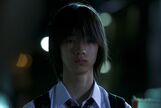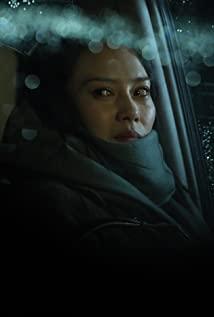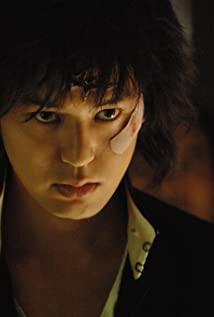watching Tetsuya Nakajima's new movie "Desire" in one go, it is truly an amazing work of genius!
However, after looking at everyone's evaluation of Mr. Nakajima's new work, most people are extremely dissatisfied with this movie that exceeds 15R, full of violence and blood, and even Mr. Nakajima who is far away in Japan is still full of dissatisfaction. Guiltily wrote an apology.
It's really a pity, Mr. Nakajima really doesn't need to apologize.
For which movie did you fall in love with this "ghost" director? It must be the same as me, "The Life of the Disgusted Matsuko" and "Confession"!
So, let's take a peek at what makes these two movies so endearing.
"The Life of the Disgusted Matsuko" tells the story of a woman named "Matsuko", who went through a lifetime of being disrespected and unloved and a miserable life. Throughout her whole life, she really has no reason not to love her: she is beautiful, generous, kind-hearted, and even the police who want to arrest her sing praises her, this woman's song is really good! But why did such a lovely woman have such a tragic life? Because of love, because no matter what kind of situation or people Matsuko encounters, she never gives up the love in her heart. Love is a blinding thing, this kind of unimaginable and heart-wrenching love eventually ruined Matsuko's life. But is it really so? I don't think so, pine nuts still have hatred! Does she hate dad? no. Does she hate her sister? Neither. Does she hate the men who abandoned him? neither. Matsuko hates only herself.
When Matsuko was running out of all her love, she hid in a dilapidated house in despair, "I don't wear makeup, I don't go out, I don't talk to strangers, and I plan to spend my whole life like this." Wrong herself, just because she is full of hatred for herself.
When a person is completely disappointed with the world, she can only hate herself, and she punishes herself in such an extreme way.
"I'm a human being, I'm sorry." This was Matsuko's last words. She didn't forgive herself until she died.
However, in such a heart-wrenching story, Mr. Nakajima used a lot of singing and dancing, and the animation exaggerated and hilariously rendered the storyline. I'm not a movie fan, I don't know anything about movie skills, but I was deeply shocked by this scene! Isn't that what our lives are like? No matter how happy, there will be times of pain, no matter how sad, there will be times of joy, but unfortunately, happiness is always fleeting like a short musical, while sadness is like a heavy ox cart, dragging people slowly. Advance slowly. This is life! Mr. Nakajima is really a director who has racked his brains, tried his best, and sincerely expressed his true thoughts.
Let's take a look at "Confession" again.
The confession tells the story of the revenge of a teacher named "Moriguchi". Contrary to Matsuko, Moriguchi is a man surrounded by hatred. As soon as the film starts, there is a gloomy and dark atmosphere, and the teacher Moriguchi said something in an emotionless and indifferent tone. The classroom was chaotic and everyone was laughing and slapsticking. The words of Mr. Moriguchi were insignificant. However, in such a strange atmosphere, with Mr. Moriguchi's indifferent narration, all the plots became clear like the magic beans grown overnight in fairy tales - Mr. Moriguchi was not telling anything, but pronouncing the sentence. !
The object of the sentence turned out to be the group of giggling students in front of her.
Those innocent and romantic children brutally killed her three-year-old daughter.
The plot took a turn for the worse, and Moriguchi-sensei began to use the students' weaknesses to launch an elaborate revenge plan.
By this time, Moriguchi had become a terrifying, cold-blooded executioner.
It is such a dark and devastating story, Mr. Nakajima still exerted his talent, let all those who knew the fear sing and dance, let all the darkness sing and dance in the piercing sunlight. Isn't this our life? How many of our lives do not hide the knife in the smile? How often do you not gently stab the people around you? I really admire Mr. Nakajima to the ground.
But Moriguchi is not the embodiment of hatred. How on earth did she become such a person? Love. Because she loves her daughter, and because love leads to hatred.
Matsuko has no daughter, she only has herself alone, and her hatred is herself. Moriguchi has a daughter, she has all the love for her own flesh and blood, and her hatred is to destroy the person who loves.
Love and hate have no opposites, and good and evil coexist. This is human nature.
In fact, all love and hatred are possessiveness, and the emotion that arises from possessiveness for what you want is called "craving".
Up to this point, have you understood the inner thoughts of Mr. Nakajima just like me?
"Desire" is a complex film that brings together the stories of Matsuko and Moriguchi.
Kanako is very similar to Matsuko. She has a violent father and a mother who only cares about her love and dating. She can't get any family love. The only beloved boyfriend was forced to death by the underworld. She neither loves nor hates, she doesn't want to trust anyone, and she doesn't want to hate anyone, she just wants to "keep falling, keep falling, and fall into that dark abyss." Unlike the first two films, Kanako is not the protagonist, She is a virtual character, and all those who are related to Kanako are the protagonists. If there is a metaphor, Kanako is probably this society.
The clue of the film starts with the disappearance of Kanako and Kanako's father looking for Kanako.
In the process of searching, Kanako's father gradually discovered that the lively and innocent daughter he imagined was a terrible murderer. In the words of the movie, "Kanako is a person who makes everyone love and destroys everyone".
This film still uses the anime, singing and dancing scenes that we are familiar with in Mr. Nakajima. The difference from the previous two films is that this time, Mr. Nakajima faced the bloody brutal picture. Why?
Because this time, what Mr. Nakajima is expressing is not the hidden hatred in love, the love hidden in hatred, but what he wants to express is the human nature entangled in love and hate!
Kanako's father, while frantically and desperately looking for his daughter, vowed to say, "I will kill her with my own hands!" Even when he went deep into the gang organization, he knelt down and begged for mercy, not to kill her daughter , In exchange for daughters, he kidnapped innocent others' wives and children.
Do you really have no experience with this kind of love-hate relationship? ! When you were wronged in adolescence, your mother slapped her head and face, why don't you want to stab your mother to death? If someone beats your mother at this time, how can you not risk your life to protect your mother?
A weak boy who loves Kanako deeply, regained his confidence to live because of Kanako, and was lured by Kanako to take drugs, raped, and ruined his life. When he raised his baseball bat and tried to kill Kanako, he couldn't. everyone! Isn't it like that when you love someone? Doesn't the appearance of a loved one make people feel new? When your lover betrays you and leaves, why don't you grit your teeth and want to kill this heartless man with one knife! But have you really moved your hand? Even if the other party says that they still love you, you are willing to die for the other party!
It's just that these love-hate emotions disappeared too quickly, and our lives were soon covered up by numbness and ordinaryness.
Tetsu Nakajima also did it. He captured this strong and subtle emotion, magnified it infinitely, and used cruel, violent, and bloody images to remind you: You have all wanted to do it!
Aside from these shots, it's really just a mediocre piece of work. How can our mind delicately experience that bottomless love-hate relationship?
Writing this, I really don't know how to express my admiration for Tetsuya Nakajima.
For this director who dares to face the darkness of life, is good at capturing the blind spots of human nature, and boldly expresses his true thoughts at all costs, I only implore you to continue creating and not be disturbed by any words.
I would like to express my sincere thanks to you for making me realize such a wonderful work!
View more about The World of Kanako reviews











